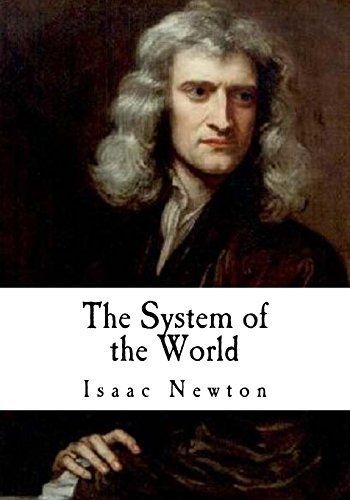
The System of the World The Principia
The System of the World by Isaac Newton. The process of writing that first edition of the Principia went through several stages and drafts: some parts of the preliminary materials still survive, while others are lost except for fragments and cross-references in other documents. Surviving materials show that Newton (up to some time in 1685) conceived his book as a two-volume work. The first volume was to be titled De motu corporum, Liber primus, with contents that later appeared in extended form as Book 1 of the Principia. A fair-copy draft of Newton's planned second volume De motu corporum, Liber secundus survives, its completion dated to about the summer of 1685. It covers the application of the results of Liber primus to the Earth, the Moon, the tides, the solar system, and the universe; in this respect it has much the same purpose as the final Book 3 of the Principia, but it is written much less formally and is more easily read. 'It was the ancient opinion of not a few, in the earliest ages of philosophy, that the fixed stars stood immoveable in the highest parts of the world; that, under the fixed stars the planets were carried about the sun; that the earth, us one of the planets, described an annual course about the sun, while by a diurnal motion it was in the mean time revolved about its own axis; and that the sun, as the common fire which served to warm the whole, was fixed in the centre of the universe. This was the philosophy taught of old by Philolaus, Aristarchus of Samos, Plato in his riper years, and the whole sect of the Pythagoreans; and this was the judgment of Anaximander, more ancient than any of them; and of that wise king of the Romans, Numa Pompilius, who, as a symbol of the figure of the world with the sun in the centre, erected a temple in honour of Vesta, of a round form, and ordained perpetual fire to be kept in the middle of it.'